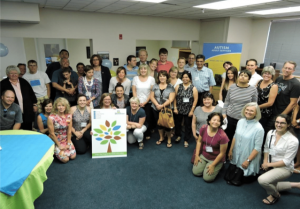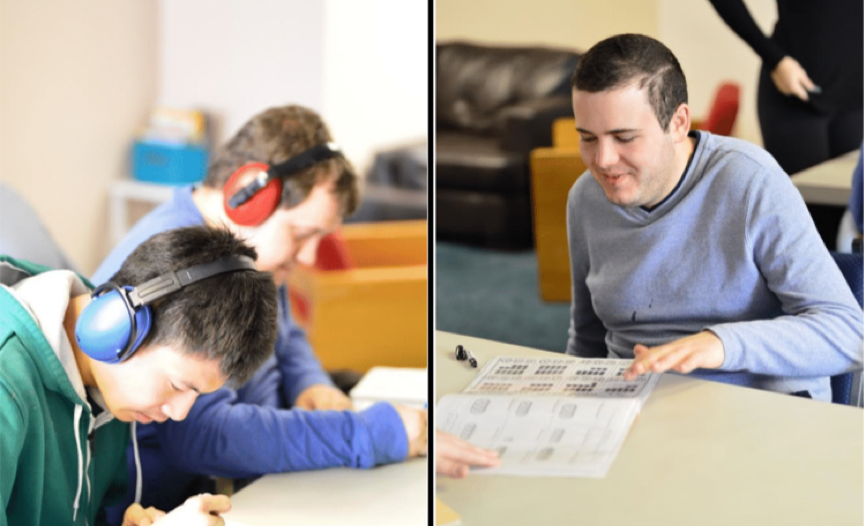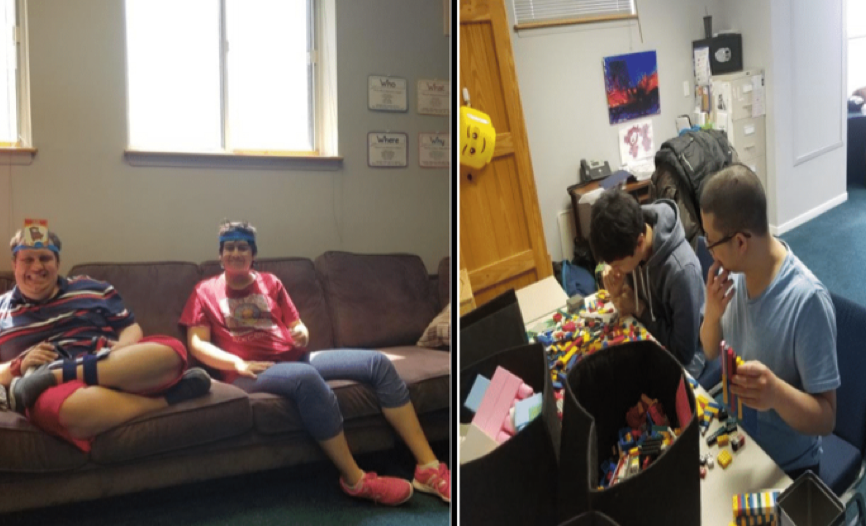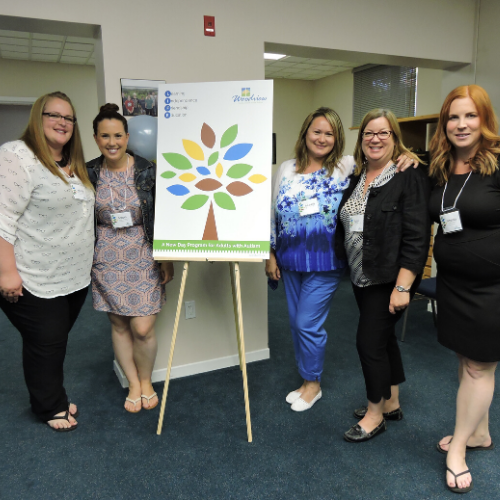February 1, 2020
A Need in Our Community
By Kate Dixon, Program Manager, Hamilton Autism Programs
It has been well established that the main areas of impairment when looking at a diagnosis of Autism Spectrum Disorder (ASD) include social communication, social interaction and repetitive behaviours. In their youth, many children and adolescents with Autism receive access a variety of programming to help bridge the gaps in these specific areas through access to schooling, therapy, camps,etc.
These supports often utilize evidence-based practice,such as Applied Behavioural Analysis, to help teach, expand, and enrich the lives individuals with ASD. Unfortunately, once these individuals reach the ages of 18-21,the post-secondary life for those not entering the work force or higher education may offer limited to no appropriate and/or enriching supports.
It is seen that these post-secondary options tend to decrease as individual support needs rise, particularly for individuals with limited communication/social skills and/or those who exhibit challenging behaviour.
Creating Options for Those in Need
Addressing this service gap very quickly became a priority for Woodview and the families in our communities that it impacted. As a result of these growing needs, Megan Brayshaw (Hamilton Autism Program Manager) looked to create the L.I.F.E (Learning, Independence, Friendship and Education) Adult Day Supports program. The goals of the program, through consultation with families, were to provide education, social,and recreational opportunities to individuals who may not fit into other existing day programs.
The program was designed to build on the foundations of ABA and evidence-based practices with a combination of group and individualized support models to enhance success. Through a lot of tireless work from staff and families, the L.I.F.E. program opened its doors in September 2016 and has been growing ever since.
PHOTO: Parents, clients, staff, community members and local dignitaries celebrate the opening of the new L.I.F.E. day program in Hamilton in September 2016.


The “F” Problem
Friendship is an essential part of our mandate (and the “F” in our name). We envisioned not only improving the basic social skills essential for navigating through life, i.e.asking for help, tolerating groups of people,etc., but expanding on this to support our participants to develop meaningful friendships outside their families and staffing teams. We quickly found that this was a task that proved much more advanced than what we had anticipated. We found ourselves asking numerous big picture questions that lead to a rabbit hole of other questions. For example, how do you teach someone to be interested in friendships when they have significant social difficulties? Now,what if both parties have no interest in making friends? Or have different communication abilities or styles? Or don’t understand their own feelings, let alone those of their peers? The list of questions quickly turned into an extensive list of barriers to developing relationships that no textbook or article had ever accurately captured for anyone in our team.
The Road to Change
The first step was to break away from our traditional thoughts of friendship for individuals with ASD. When we used words like “friendship” we thought of blanket definitions of peer interactions as outlined in many group learning models. But as much as we are a group,we are a group of individuals. We are committed to a person-centred approach and asked ourselves what “friendship” or positive social relationships could look like for each of our individuals. For one person, it could be sitting down and sharing a tea in silence; for another, simply taking turns or holding a door. It could be something as big as spending time together outside program, to something as simple as asking how someone’s day is going or noticing when they aren’t at program.
From here,our team started working on the teaching and setting up natural environment settings to promote peer interactions. We utilized our academic component to teach the foundations of conversation and emotional recognition; made board game cafes; participated in group activities and lessons to promote turn taking; set up conversation opportunities; encouraged simple courtesies such as waiting for the group or holding the door. The team incorporated opportunities for social interactions throughout everything we do from day to day. Very quickly social interaction has become a huge component of what we were focused on, and became ingrained in everything we did.




We measure in successes, no matter the size!
As in any evidence based supports, data and tracking is key. We developed assessment tools and behaviour tracking methods to help us track progress and set goals for our participants, but there was always an element that data couldn’t capture: the level of social and emotional growth that our participants have experienced. The best way we can share this information is through the everyday stories and successes shared with and experienced by our team.
The following are some of successes highlighted by our team.
“It was shared by a family that one individual’s doctor noted at his last visit how much spontaneous conversation he engaged in. They noticed he was expressing how he felt and was very patient in the appointment. This was a huge gain as this person has anxiety around medical appointments and missing preferred activities for them.”
“One of our participants was having a difficult time as there was a dog nearby and he was afraid. His peer walked up to him and put his hand on his shoulder and said “Don’t worry it’s only a dog”. It was a spontaneous and unprompted act of consideration towards his peer –we had never see him do anything like this before.”
“They ask for each other when someone is absent. They wait for their specific friend when they’re running late before making their tea or starting their activity. They want to spend time together, they want to sit together. When this program started everyone acted like strangers even if they had been in school together for years. Now they’re friends.”




How to Support the L.I.F.E. Program
Our goal is to continue to work on building these success stories and promoting long term relationship building for a group of people who might not have had these opportunities otherwise. The L.I.F.E. Adult Day Supports Program is funded almost entirely by tuition paid by families/participants and receives no Ministry subsidization funding. To help keep costs affordable, experiences new,and materials up to date,we happily accept donations towards the program.
For online donations, please be sure to select ‘LIFE Adult Autism Day Program (Hamilton)’ option from the drop down menu.



